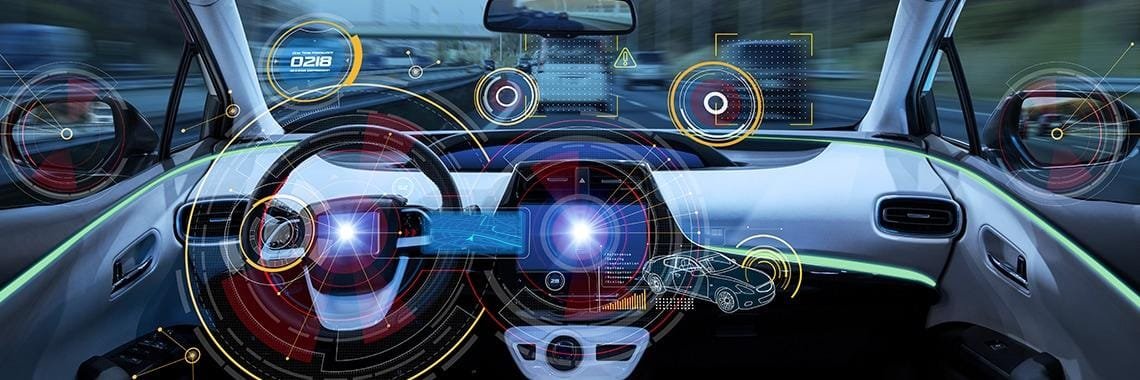Table of Contents
The open road has long been a canvas for innovation, showcasing human ingenuity and the relentless pursuit of progress. As we steer into the future, automotive technology is transforming not just how we drive, but also how we interact with our vehicles and the world around us. From the advent of the combustion engine to the rise of electric vehicles and autonomous systems, each evolution brings with it new possibilities and challenges.
Today, the automotive landscape is a fascinating interplay of sustainability, connectivity, and automation. Car manufacturers are increasingly focused on creating vehicles that are not only efficient but also equipped with cutting-edge technology that enhances the driving experience. With advancements in AI, machine learning, and renewable energy, the future of driving promises not only speed and efficiency but also a more responsible approach to our planet’s resources.
As we embark on this journey through the timeline of automotive evolution, we will explore the milestones that have defined this industry, highlighting the key technologies that are shaping the cars of tomorrow. The road ahead is filled with exciting developments, and understanding this evolution is essential for both enthusiasts and everyday drivers alike.
The Journey Begins: A Look Back at Key Innovations in Automotive Technology
The landscape of automotive technology has undergone a metamorphosis, punctuated by key innovations that have redefined how we drive. From the advent of the electric starter in the early 20th century, which eliminated the cranking hassle, to the introduction of anti-lock braking systems (ABS) in the 1970s, these developments have significantly enhanced safety and convenience on the road.
With the dawn of the digital age, innovations like advanced driver-assistance systems (ADAS) and in-car connectivity are shaping the future. These cutting-edge technologies not only improve navigation and road safety but also pave the way for a greener tomorrow through features like smart energy management and autonomous driving capabilities.

Smart Vehicles: Understanding the Role of AI and Connectivity in Modern Driving
The integration of artificial intelligence and connectivity in vehicles is revolutionizing the way we drive. With features like adaptive cruise control, lane-keeping assistance, and automated parking, smart vehicles are enhancing safety while providing unparalleled convenience. These systems leverage data collected from various sensors and external networks, enabling real-time decision-making that decreases the likelihood of accidents.
Moreover, the rise of vehicle-to-everything (V2X) communication allows cars to interact not only with each other but also with smart traffic signals and infrastructure. This connectivity enables traffic management solutions, minimizing congestion and enhancing fuel efficiency. As AI continues to evolve, the potential for a fully autonomous driving experience becomes increasingly attainable, reshaping our approach to transportation.

Sustainable Solutions: Exploring the Shift Towards Eco-Friendly Automotive Practices
The automotive industry is witnessing a remarkable transformation, embracing eco-friendly practices that prioritize sustainability without compromising performance. Innovative technologies are reshaping vehicle manufacturing, focusing on reducing carbon footprints and energy consumption. Manufacturers are investing in renewable materials, such as bioplastics and recycled metals, which offer viable alternatives to traditional components.
Moreover, the integration of electric and hybrid vehicles into mainstream markets reflects a commitment to cleaner transport solutions. Alongside these advancements, companies are exploring alternative fuels, such as hydrogen and biodiesel, promoting a circular economy that benefits both consumers and the environment. This shift not only contributes to lower emissions but also enhances long-term resilience in the automotive sector.
| Eco-Friendly Practices | Benefits |
|---|---|
| Use of Renewable Materials | Reduces waste and resource depletion |
| Electric Vehicles (EVs) | Lower emissions, reduced fossil fuel reliance |
| Alternative Fuels | Promotes energy diversity and sustainability |

The Road Ahead: Predictions and Recommendations for Future Developments in Automotive Technology
The landscape of automotive technology is rapidly transforming, with several key advancements poised to shape the future of the industry. The rise of autonomous vehicles will redefine mobility, while electric powertrains will become the standard rather than the exception. As battery technology improves, the range anxiety associated with EVs will diminish, paving the way for broader adoption and a cleaner environment.
Moreover, the integration of smart technologies within vehicles is set to enhance user experience significantly. Features like advanced driver-assistance systems (ADAS) and connected car technologies will redefine safety standards and enable real-time data sharing, making every journey smarter and safer.
| Trend | Description |
|---|---|
| Autonomous Driving | Vehicles will operate without human intervention, enhancing safety and convenience. |
| Electric Vehicles | Transition from combustion engines to greener electric alternatives for sustainability. |
| Smart Connectivity | Integration of IoT for seamless communication between vehicles and infrastructure. |
The Way Forward
As we steer into the future of automotive technology, it’s essential to recognize the milestones that have shaped the road ahead. The ongoing evolution is not just about innovation; it’s a transformation that impacts every aspect of our driving experience.
- Electric Vehicles (EVs) are leading the charge, promising a greener planet.
- Autonomous Driving is reshaping our ideas of safety and convenience.
- Smart Connectivity enhances user experience, providing real-time updates and assistance.
the revolution of automotive tech invites us to embrace change. With each advancement, we inch closer to a world where our vehicles are not just modes of transport but intelligent companions on life’s journey. The road ahead is not just paved with asphalt, but with innovation, sustainability, and endless possibilities. As we look forward, let’s remain open to the profound changes that will redefine our driving experiences for generations to come.



